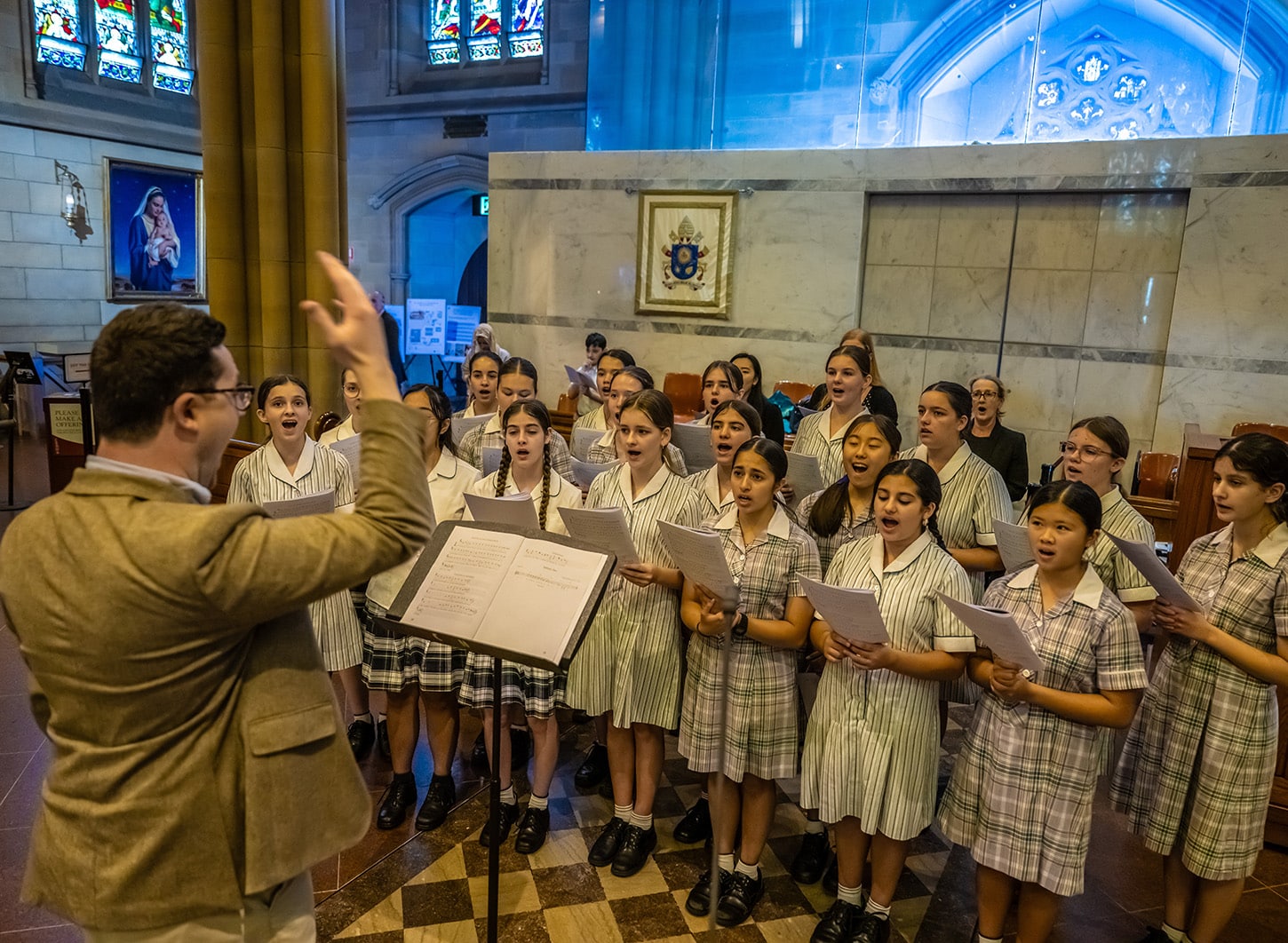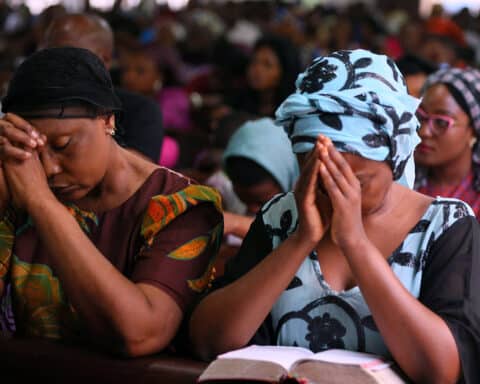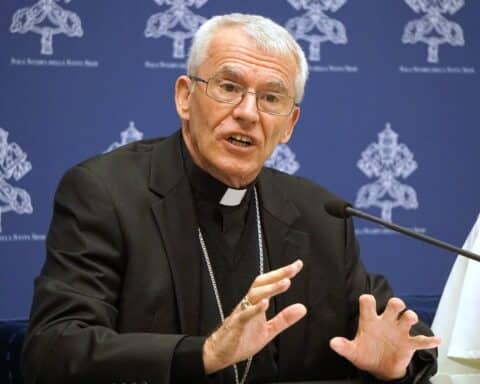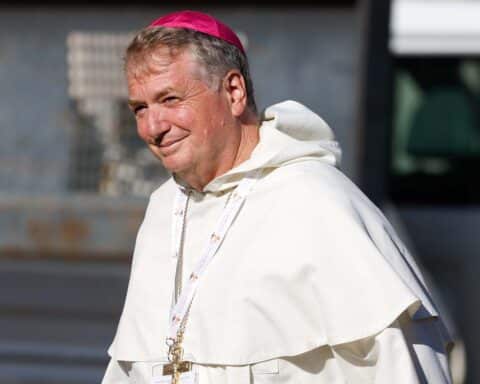SYDNEY (OSV News) — Dominican Sister Cecilia Joseph, school principal at St. Peter Chanel primary school in Regents Park in Sydney, said a mother told her she was enjoying the “song” her young son was learning at school.
“It was the Magnificat,” Sister Cecilia said.
“She explained that her son and his friends sang this chant while playing video games or whenever they played together,” she said, revealing a secret of how to make school kids love Gregorian chant.
Two hundred and fifty of Sister Cecilia’s students are taking part in the Jubilate Deo program, which seeks to teach Gregorian chant to thousands of school students in the Archdiocese of Sydney, as part of a “critical part of going deeper in creating an authentic Catholic culture in our schools.”
A jaw-dropping 1,100-strong student choir assembled at St. Mary’s Cathedral in Sydney on Nov. 23 for a sung Mass to mark the program’s success in bringing Pope Paul VI’s vision of a Gregorian chant repertoire for lay Catholics to life.
Beginning in 2018 with a workshop for a group of senior students at Brigidine Catholic College in Randwick in Sydney’s eastern suburbs, the Jubilate Deo program has trained students from nine primary and two secondary schools in a repertoire drawn from Pope Paul VI’s post-conciliar booklet Jubilate Deo, after which their program is named.
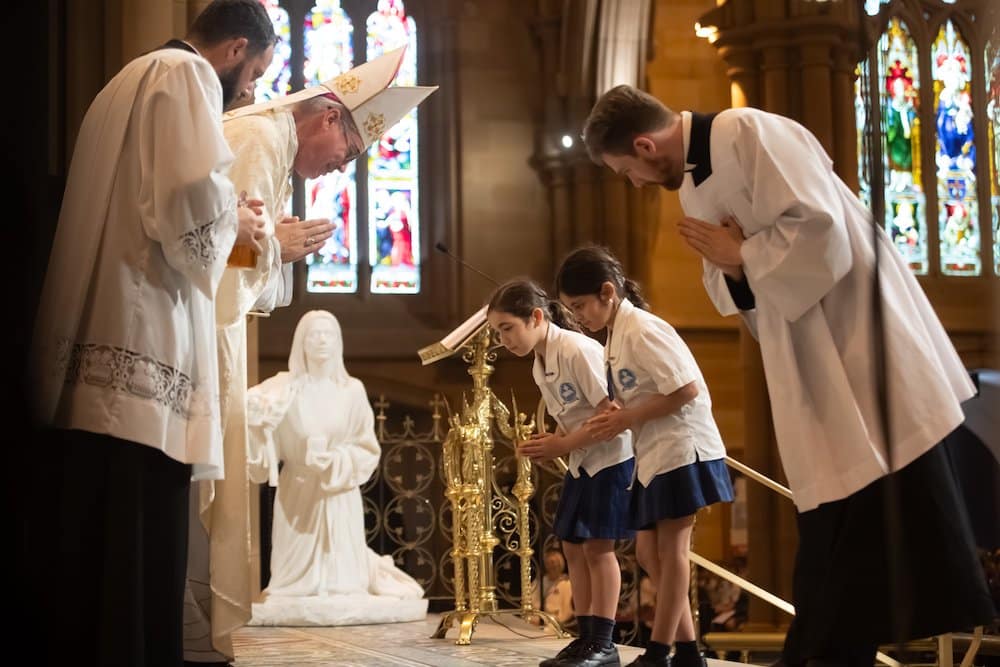
Learning about the Faith
Led by the original Brigidine college choir, the students sang favorites like “In Faith and Hope and Love” by modern Australian hymnographers James McAuley and Richard Connolly, and fittingly, the Renaissance hymn “Jubilate Deo” (deftly accomplishing a three-part round).
They also chanted the responses of the Mass, which they have been practicing at school.
The students say that learning music from the Church’s rich treasury connects them with their faith and each other, and is simply fun to sing.
“I’ve learned beautiful music and more about where my faith comes from and how the words that we sing resonate with so many different cultures,” year 9 student Sienna Simons said.
“It’s made me more appreciative of my religion and the fact that I get to express it so freely in a way that is beautiful, holy and sacred,” she added.
Feedback from parents and principals is glowing and the Jubilate Deo program will soon be expanded to include more schools, as well as parishes and Catholic university chaplaincies.
The aim is to enhance people’s participation in local liturgies and unite the whole archdiocese in song at events like the annual Corpus Christi procession through Sydney’s central business district.
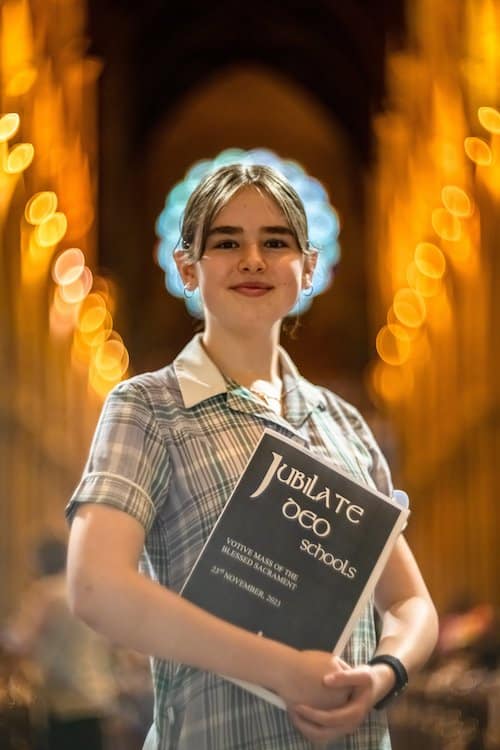
Praising God in music
Auxiliary Bishop Richard Umbers has prepared and delivered the Archdiocese of Sydney‘s bid to host the 54th International Eucharistic Congress in 2028.
He told the packed cathedral on Nov. 23 that half a million Sydney residents joined a procession of the Blessed Sacrament when Sydney hosted the 20th congress in 1928.
“Wouldn’t it be amazing 100 years later to sing all together in the streets of Sydney like that again?” he said.
Following the Mass, the bishop said that it was a sign of the future of the Church in Sydney “where we will be praising God at the top of our lungs, all together in the streets, giving witness to our faith in Jesus Christ.”
Pope Paul VI’s 1974 booklet Jubilate Deo proposed a “minimum repertoire” of plainchant to the world’s bishops, and included chants for the Kyrie and Agnus Dei, and hymns such as the Salve Regina.
Jubilate Deo Director Ronan Reilly uses the saint pope’s little-known resource as a basis for teaching a broad range of ancient and modern sacred music. He said the program is in use in other dioceses, but only Sydney has committed to a coordinated effort.
“The ultimate rationale behind the program from Pope Paul VI is that when we sing collectively — particularly monophonic music with its one-line, simple melody — whether with 10 people or 10,000, it’s a great musical analogy for the concept of unity,” he said.
“So for example, during Mass in the cathedral this week when Bishop Umbers, in the person of Christ, sang ‘Peace be with you’ and 1,000-plus voices sang back in unison ‘And with your spirit,’ it’s a literal sensation and experience, a tangible experience of the idea and the ideal of unity.”
“Children tap into all these notions even on a subconscious level,” he said. “And while as teachers we’re not privy to the inner workings of Our Lord in each student’s heart, obviously we know that this does work on the sacramental level and is a powerful means of transmitting grace and of course truth, goodness and beauty.”
Reilly said the Vatican II Constitution on the Sacred Liturgy, Sacrosanctum Concilium, reminds us that Gregorian chant holds pride of place in the Roman rite.
“The Gregorian melodies are not just artful, steady and beautiful on a natural level, they are deeply theological, and it’s in that context the church has jealously guarded that repertoire as her own and has said that then becomes the model,” he said.

